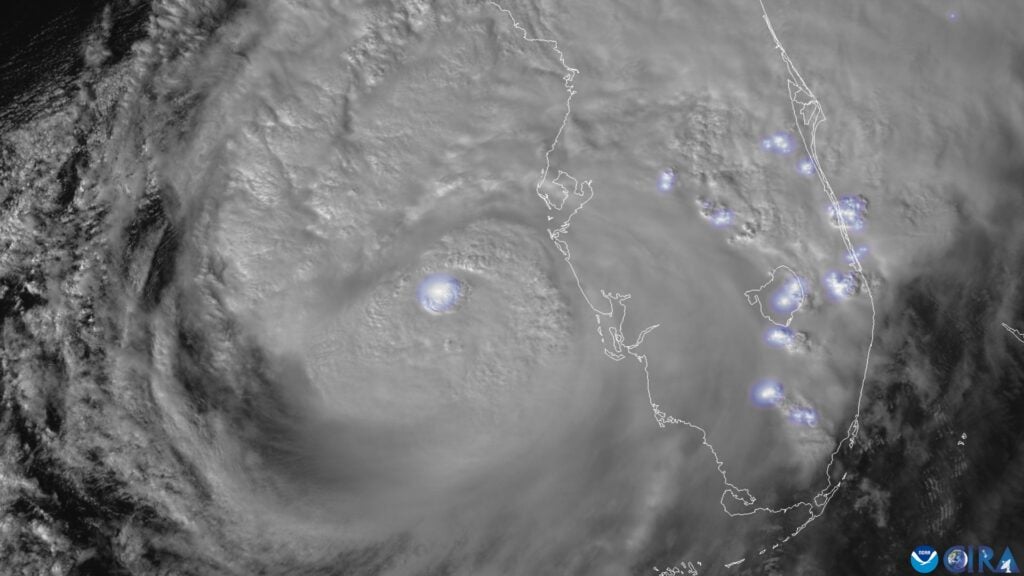Google DeepMind has unveiled GenCast, a groundbreaking AI weather prediction model that surpasses traditional methods in accuracy and forecasting capabilities. This generative AI, detailed in a recent Nature publication, promises to transform how we understand and prepare for weather events, especially extreme ones.
GenCast utilizes a diffusion model, similar to those powering AI image generators like Midjourney and Stable Diffusion. However, instead of artistic prompts, GenCast analyzes real-time weather data to predict future scenarios. It’s specifically designed for the Earth’s spherical geometry, a crucial factor for accurate global forecasting.
Traditional models, such as the European Centre for Medium-Range Weather Forecasts’ (ECMWF) ENS, rely on complex physics equations. While effective, these equations are approximations of atmospheric dynamics, limiting their precision. GenCast, by contrast, learns directly from vast datasets, uncovering intricate relationships that traditional models might miss. This allows it to predict extreme weather events, tropical storm movements, and wind gusts with remarkable accuracy.
GenCast’s development builds upon DeepMind’s previous successes in AI-powered weather prediction. GraphCast, released in 2023, demonstrated the potential of machine learning in outperforming existing models. More recently, NeuralGCM, a hybrid model combining traditional physics with machine learning, further validated the approach. GenCast, however, boasts significantly higher resolution, making it better suited for operational medium-range forecasting.
 Diagram illustrating GenCast's weather prediction process.Diagram illustrating GenCast’s weather prediction process. Image: NOAA / CIRA
Diagram illustrating GenCast's weather prediction process.Diagram illustrating GenCast’s weather prediction process. Image: NOAA / CIRA
Tested on 2019 weather data after training on historical data up to 2018, GenCast outperformed ENS on 97.2% of targets across various weather variables and lead times. For predictions beyond 36 hours, the accuracy jumped to an impressive 99.8%. The model also demonstrated improved accuracy in tracking Typhoon Hagibis, a devastating 2019 storm, showcasing its potential for mitigating the impact of extreme weather.
Beyond disaster prediction, GenCast offers valuable insights for energy management. In a test predicting wind power generation from over 5,000 wind farms, GenCast surpassed ENS by approximately 20% for lead times of two days or less, with statistically significant improvements lasting up to a week. This capability can revolutionize energy infrastructure deployment and optimize renewable energy generation.
ECMWF acknowledges GenCast as a significant advancement in weather forecasting, highlighting the ongoing revolution driven by machine learning. They emphasize the importance of rigorous testing, particularly in extreme weather scenarios, to fully assess GenCast’s capabilities. While acknowledging the innovative science behind GenCast, they point out the model’s comparison was against a 5-year-old version of ENS, which now operates at a higher resolution.
To foster further development, DeepMind has made GenCast’s code open-source for non-commercial use and is working on releasing an archive of weather forecasts. This allows researchers and meteorologists to test, build upon, and accelerate advancements in the field. DeepMind also indicates that fine-tuned versions of GenCast are being integrated into Google Search and Maps.
GenCast’s enhanced accuracy and forecasting capabilities hold immense potential for protecting communities from extreme weather and optimizing energy resources. While a timeline for full operational implementation remains unclear, its development marks a pivotal step towards a future where AI plays a critical role in predicting and mitigating the impacts of weather.











